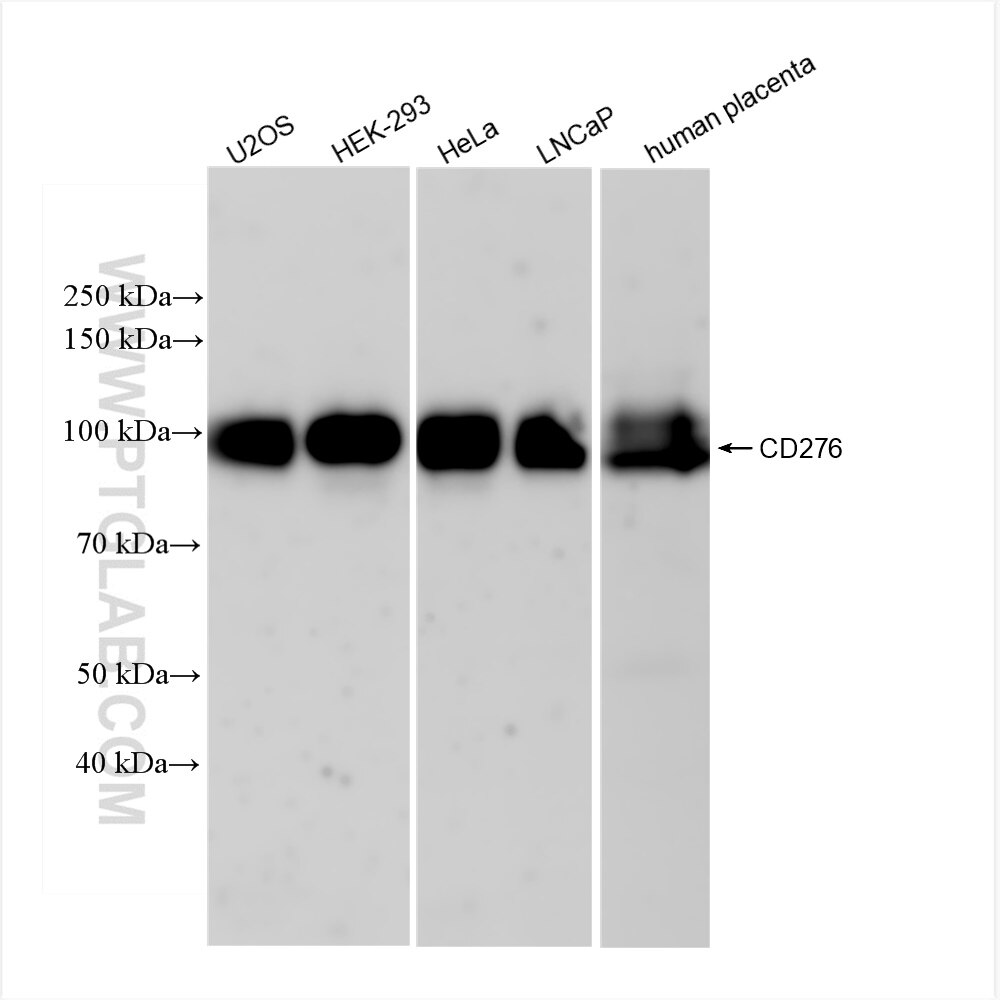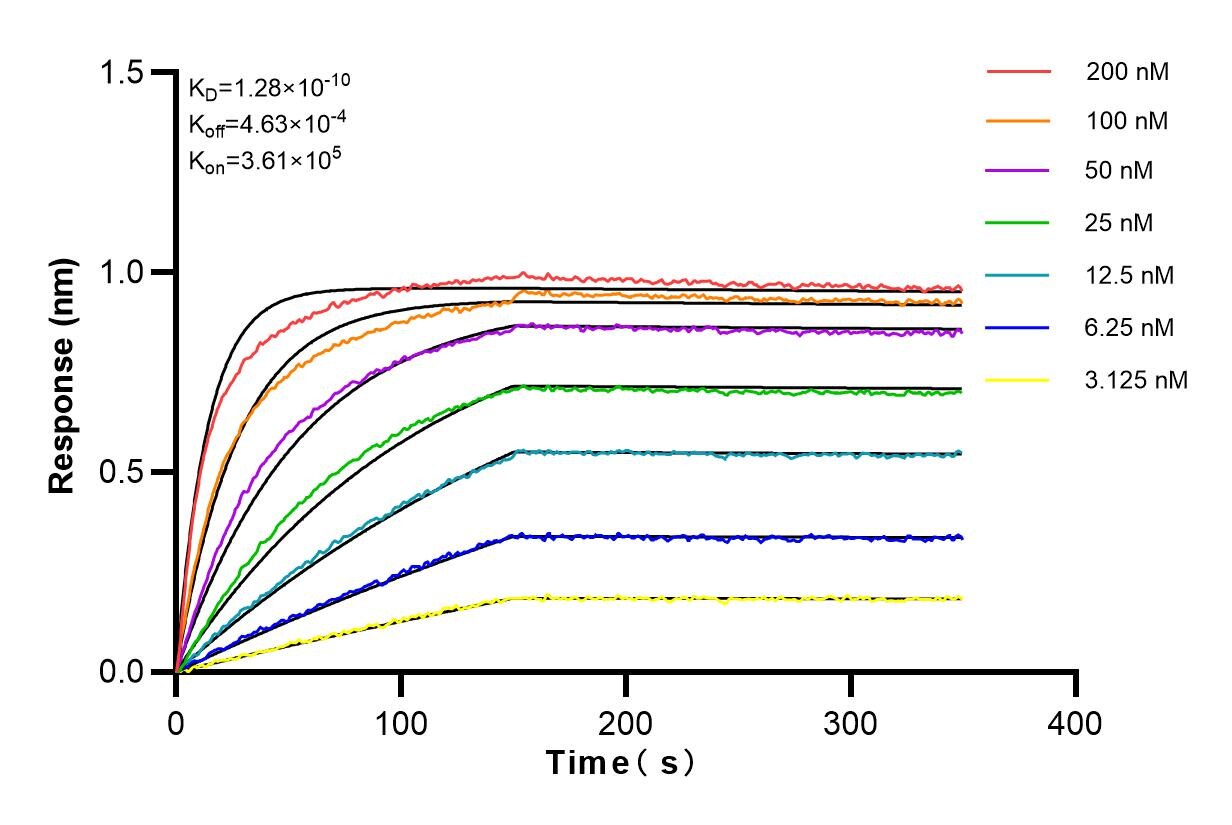Validation Data Gallery
Tested Applications
| Positive WB detected in | U2OS cells, HEK-293 cells, HeLa cells, LNCaP cells, human placenta tissue |
Recommended dilution
| Application | Dilution |
|---|---|
| Western Blot (WB) | WB : 1:5000-1:50000 |
| It is recommended that this reagent should be titrated in each testing system to obtain optimal results. | |
| Sample-dependent, Check data in validation data gallery. | |
Product Information
83152-5-RR targets B7-H3/CD276 in WB, ELISA applications and shows reactivity with Human samples.
| Tested Reactivity | Human |
| Host / Isotype | Rabbit / IgG |
| Class | Recombinant |
| Type | Antibody |
| Immunogen | Fusion Protein 相同性解析による交差性が予測される生物種 |
| Full Name | CD276 molecule |
| Calculated molecular weight | 57 kDa |
| Observed molecular weight | 95-100 kDa |
| GenBank accession number | NM_001024736 |
| Gene Symbol | CD276 |
| Gene ID (NCBI) | 80381 |
| RRID | AB_3670847 |
| Conjugate | Unconjugated |
| Form | Liquid |
| Purification Method | Protein A purfication |
| UNIPROT ID | Q5ZPR3 |
| Storage Buffer | PBS with 0.02% sodium azide and 50% glycerol , pH 7.3 |
| Storage Conditions | Store at -20°C. Stable for one year after shipment. Aliquoting is unnecessary for -20oC storage. |
Background Information
B7-H3 (CD276) is a type I transmembrane protein expressed on many tissues and cell types. B7-H3 is a 100-kDa glycoprotein that belongs to the B7 immunoregulatory family and participates in the regulation of T-cell-mediated immune response probably by functioning as both a T cell costimulator and coinhibitor (PMID: 25567370; 20696859). Overexpressed on a wide range of human solid cancers, B7-H3 has been implicated in cancer progression and metastasis and becomes an attractive target for cancer immunotherapy (PMID: 27208063).
Protocols
| Product Specific Protocols | |
|---|---|
| WB protocol for B7-H3/CD276 antibody 83152-5-RR | Download protocol |
| Standard Protocols | |
|---|---|
| Click here to view our Standard Protocols |

